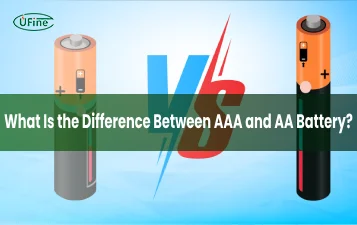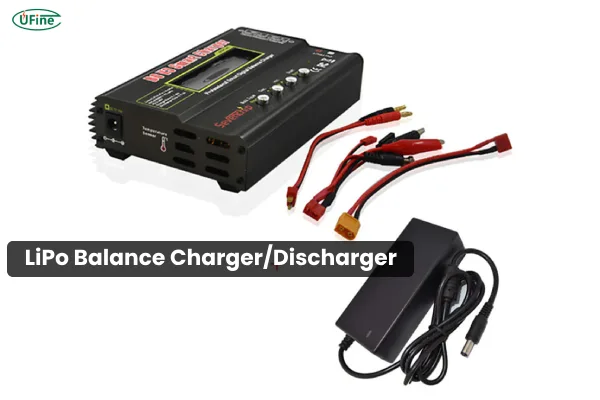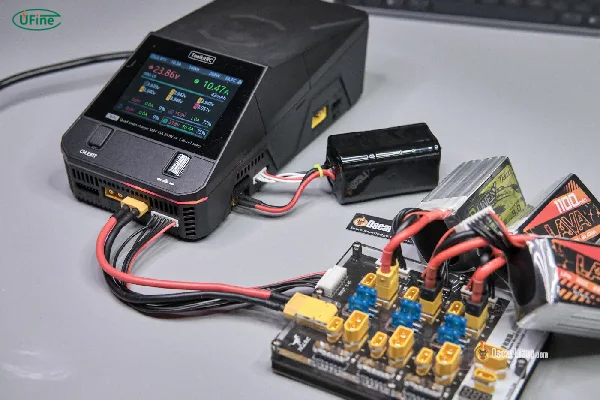
- Part 1. Understanding what a LiPo charger does
- Part 2. Know your battery specs first
- Part 3. Essential features to look for in an RC LiPo charger
- Part 4. Consider your charging environment and use case
- Part 5. Top RC LiPo charger brands and models
- Part 6. Practical tips for safe and efficient charging
- Part 7. Budget vs. performance—which charger is right for you?
- Part 8. Custom battery packs
- Part 9. Final thoughts
RC trucks are exhilarating machines—offering speed, agility, and pure fun. However, without the right charger, your performance can falter, battery life can degrade, and safety may be compromised. That’s where the RC LiPo charger comes into play. Whether you’re new to RC vehicles or a seasoned racer, choosing the right LiPo charger is essential for getting the most out of your RC truck.
In this comprehensive guide, we’ll walk you through everything you need to know about selecting an RC LiPo charger that meets your needs, from understanding the basics to analyzing advanced features and brand options.
Part 1. Understanding what a LiPo charger does
A LiPo (Lithium Polymer) charger is specifically designed to charge LiPo battery packs, which are commonly used in RC trucks due to their high power density and lightweight construction. These batteries are more sensitive than NiMH or NiCd batteries and require precise voltage control during charging.
Key functions of a LiPo charger:
- Balances cells in a multi-cell pack
- Monitors charge voltage per cell
- Ensures safe charging currents
- Automatically terminates charging when the battery is full
Using the wrong charger can lead to:
- Swollen (puffed) batteries
- Reduced battery lifespan
- Fire hazards
A quality RC LiPo charger does more than just fill your battery—it protects your truck, your home, and your wallet.
Part 2. Know your battery specs first
Before you can choose a charger, you must understand the specs of your LiPo battery. Here’s what you need to check:
1. Cell Count (S)
LiPo packs come in different voltages, denoted by cell count:
- 2S = 7.4V
- 3S = 11.1V
- 4S = 14.8V, and so on.
The charger you select must be able to handle the number of cells in your pack.
2. Battery Capacity (mAh)
- A 5000mAh battery = 5Ah (amp-hours)
- Determines how long the battery will last, but also affects how fast it can safely be charged.
3. Charge Rate (C-Rating)
Most LiPo batteries specify a “C” rating for charging. For example:
- A 5000mAh battery with a 2C rating can be safely charged at 10A (2 × 5A)
Knowing this will help you pick a charger with the appropriate output current.
Part 3. Essential features to look for in an RC LiPo charger
When shopping for an RC LiPo charger, these are the must-have features:
1. Balance Charging
- Balances each cell to the same voltage, preventing overcharging.
- Crucial for safety and battery health.
2. Multiple Output Ports
- Enables you to charge multiple batteries at once.
- Ideal for hobbyists with more than one RC truck or several backup packs.
3. AC/DC Input Compatibility
- AC Chargers plug into wall outlets.
- DC Chargers need an external power supply (great for field charging from a car battery).
Do Lithium Batteries Output AC or DC Power?
A hybrid AC/DC charger gives you flexibility for home and on-the-go use.
4. Adjustable Charge Rate
- Important for different battery capacities.
- Allows you to fine-tune charging speed based on your battery’s C-rating.
5. Display Screen & User Interface
- LCD or LED screens with intuitive menus help monitor charge progress, voltage per cell, and error messages.
6. Safety Features
- Overcharge protection
- Overheat shutdown
- Short-circuit protection
- Reverse polarity protection
7. Storage and Discharge Modes
- Storage mode charges/discharges your battery to ideal storage voltage.
- Discharge mode can safely reduce voltage if the battery is overcharged.
Part 4. Consider your charging environment and use case
Choosing the right charger also depends on how, where, and how often you use your RC truck:
If You’re a Casual Weekend Basher:
- A dual-channel AC charger is often enough.
- Simpler interfaces, slower charge rates (2-4A) are acceptable.
If You’re a Racer or Enthusiast:
- Go for a high-performance charger with a power supply.
- 10A+ output, faster charging, and detailed telemetry for monitoring.
Field Charging Needs:
- Opt for DC chargers that work with a car battery.
- Portable, compact design is a bonus.
Part 5. Top RC LiPo charger brands and models
Here are some trusted brands and popular models in the RC world:
1. ISDT (e.g., ISDT Q6 Pro)
- Compact and fast
- Great for field use
- Wide input voltage range
2. Hitec (e.g., Hitec RDX2 Pro)
- Dual-channel, versatile
- Reliable and precise balancing
3. SkyRC (e.g., SkyRC T100 or D100 V2)
- Widely used among RC enthusiasts
- Features Bluetooth app monitoring
4. ToolkitRC
- Affordable with great value
- Integrated PSU in some models
5. Ultra Power / EV-Peak
- Reliable mid-range options
🔋 Tip: If you’re using high-capacity or high-voltage packs (4S or more), invest in a charger that can scale with your power needs.
Part 6. Practical tips for safe and efficient charging
Even the best charger can’t prevent accidents if misused. Follow these charging best practices:
✅ Always:
- Use a LiPo-safe bag during charging.
- Place the battery on a non-flammable surface.
- Monitor charging in person—never charge overnight.
❌ Never:
- Charge a damaged or swollen pack.
- Exceed your battery’s rated charge current.
- Leave batteries fully charged for extended storage.
⚙️ Pro Tip:
Program the charger to stop at 4.18V per cell instead of the full 4.20V. You’ll sacrifice a small amount of capacity but significantly extend your battery life.
Part 7. Budget vs. performance—which charger is right for you?
LiPo chargers come in all price ranges. Here’s how to decide:
🔹 Under $50
- Basic, single-battery AC chargers
- Good for beginners with 2S–3S batteries
🔹 $50–$100
- Dual-channel, higher amps, more flexible
- Mid-level hobbyists who run multiple trucks
🔹 $100–$200+
- Advanced units with full-color displays, PC connection, and logging features
- Competitive racers or tech-savvy users
💡 Investing in a good charger is like buying a good helmet for a motorcycle. It protects your batteries, and in the long run, it protects your wallet too.
Part 8. Custom battery packs
If you’re using custom LiPo battery packs for specific power or size requirements, such as those provided by Ufine Battery—a professional custom lithium battery manufacturer in China—you’ll want a charger that lets you fine-tune parameters like:
- Charge cutoff voltage
- Cell balancing tolerance
- Custom charge profiles
👉 Ufine Battery provides high-performance custom LiPo packs ideal for RC trucks, drones, and robotics. If you’re sourcing tailored packs for unique RC applications, get in touch with Ufine Battery for expert support and reliable delivery.
Part 9. Final thoughts
Choosing the right RC LiPo charger is not just a matter of plug-and-play—it’s an investment in the performance, safety, and longevity of your RC truck. By understanding your battery’s needs, charger features, and your own use case, you can make a smart, informed decision that keeps your RC experience smooth and safe.
If you’re still unsure or need custom LiPo battery solutions for your RC truck, don’t hesitate to reach out to Ufine Battery. Our technical team can help match the perfect charger-battery combo tailored to your needs.
Related Tags:
More Articles

Understanding the Difference Between AA and AAA Batteries
Wondering about the difference between AA and AAA batteries? Learn the key differences, similarities, and when to use each in this detailed guide.
3S LiPo Batteries Explained – How to Pick the Best 3S Battery
This guide includes 3S voltage charts, capacity options, life, safety rules, and top recommended batteries — so you can choose the best 3S LiPo battery.
The Ultimate Guide to C Type Battery
What is a C type battery? Discover sizes, types (alkaline/NiMH/lithium), vs AA/D batteries, top uses, and where to buy the best C batteries for your devices.
4.0Ah vs. 2.0Ah Battery: Key Differences and Which is Best for Your Projects
Compare 2Ah vs 4Ah batteries: meaning, runtime, weight, and best tool uses. Learn if 4.0Ah is worth it for your cordless tools and DIY projects.
The Ultimate Guide to Battery Posts and Battery Terminals
Explore battery terminal types, maintenance tips, and troubleshooting. Learn how to clean corrosion, identify positive/negative terminals, and prevent issues.




